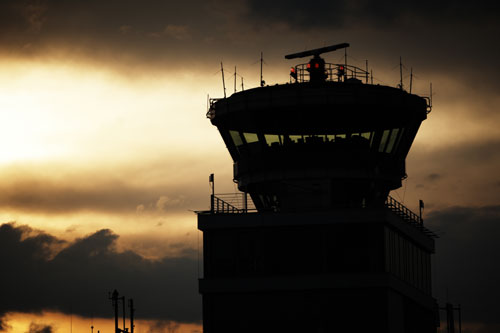Air Traffic Controller Career
 Air traffic controllers are responsible for maintaining distance between aircraft in a specific area of the sky. They ensure aircraft don’t crash into each other, navigate pilots around the airport, and sometimes offer assistance to pilots in navigating around weather systems.
Air traffic controllers are responsible for maintaining distance between aircraft in a specific area of the sky. They ensure aircraft don’t crash into each other, navigate pilots around the airport, and sometimes offer assistance to pilots in navigating around weather systems.
ATC is one of the most important components of the aircraft environment as they provide information to pilots during cloudy weather, when pilots are unable to fly with references to the ground.
Air Traffic Controller Career Snapshot
Air traffic controllers specializing in ground control work at control towers, which are high, windowed towers located near the center of an airport. They may also work in area centers, which provide separation services for a large area as opposed to small, local areas. These centers are generally housed in a regular building as opposed to a tower. Finally, local ATC providers not providing ground services may work in a dark room with radar screens to minimize eye strain.
Further details on a career as an air traffic controller are listed below (statistics from the May 2015 Bureau of Labor Statistics and Onet Online):
is the average yearly salary for air traffic controllers.
decrease in employment between 2014 and 2024.
have a High School Diploma or equivalent; 21% have a Post-Secondary certificate.
Air Traffic Controller Education
Individuals interested in a career in air traffic control must hold at least an Associate’s degree and must pass a written test issued by the Federal Aviation Administration. The FAA provides training programs for interested individuals, and a number of universities have ATC programs that provide graduates with training and exam completion.
Air Traffic Controller Salaries
Salaries for air traffic controllers generally range from $66,780 to $172,590 per year, with a median of about $122,950 according to May 2015 BLS.gov salary reports. Air traffic controllers are considered state or federal employees in the majority of situations, so benefits packages can be competitive and enticing.
Air Traffic Controller Job Outlook
The job outlook for this career is slightly declining, as some airports are closing down control towers and moving to an untowered system. However, individuals who are devoted to the career are likely to have rewarding careers.
Air Traffic Controller Job Duties
Air traffic controllers are responsible for the lives of the pilots they are directing. Pilots can fly under Visual Flight Rules (being able to see the ground) or Instrument Flight Rules (in clouds, unable to see the ground), so ATC is the only resource available to safely navigate these pilots. Air traffic controllers study radar screens, keep notes on individual planes they are managing, communicate with pilots, provide directions and clearances, and provide support in case of emergency. They are also responsible for clearing planes on the ground.
Air Traffic Controller Skills & Traits
| Air Traffic Controller Skill Set: | Required Abilities: | Tools Used by Air Traffic Controller: | Typical Work Activities: |
|---|---|---|---|
| • Active Listening • Speaking • Critical Thinking • Making Decisions • Complex Problem Solving | • Problem Sensitivity • Oral Comprehension • Oral Expression • Selective Attention • Deductive Reasoning | • Aircraft communication systems • Aircraft flight simulators • Aircraft guidance systems • Aircraft navigation beacons • Radarbased surveillance systems | • Decision Making • Identifying Objects/Actions • Getting Information • Monitor Processes/Materials • Communicating with Others |
Related Careers
Airline & Commercial Pilots
Bachelor’s Degree
Avionics Technicians
Postsecondary Certificate
Aerospace Engineering & Operations Techs
Associate’s Degree


